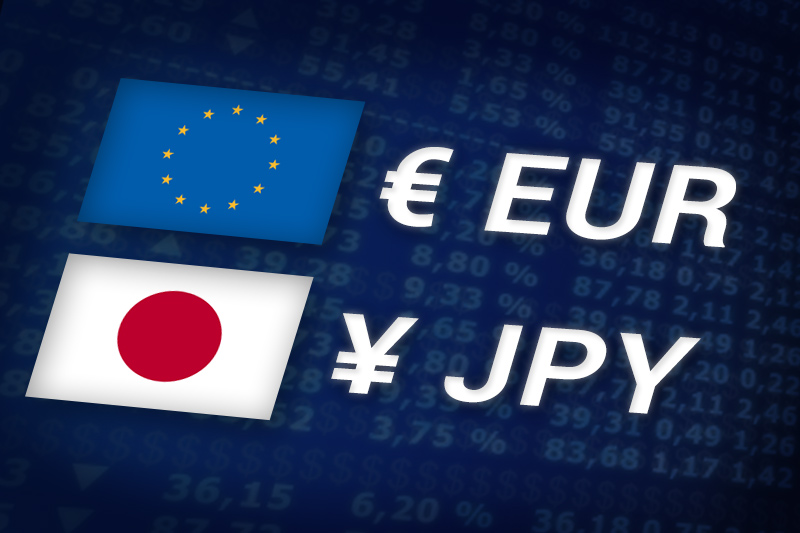Investing.com - The euro edged higher against the yen on Thursday, pulling away from a four-month low amid speculation over more easing steps by the European Central Bank and the Federal Reserve, but gains were limited as euro zone debt concerns persisted.
EUR/JPY hit 99.37 during European afternoon trade, the pair’s lowest since February 1; the pair subsequently consolidated at 100.22, adding 0.15%.
The pair was likely to find support at 99.10, the low of January 23 and resistance at 100.87, the high of February 3.
The euro found mild support after amid reports the ECB could launch fresh liquidity measures, after policymaker Ewald Nowotny said the bank has not yet used its full arsenal. Nowotny also added that Greece will have to implement austerity measures in order to receive further support.
Meanwhile, downbeat economic data from the U.S. sparked fresh concerns over the strength of the U.S. recovery, raising speculation that the Fed could also launch a third round of quantitative easing to shore up growth.
Official data showed earlier that U.S. core durable goods orders fell 0.6% in April, dropping for the second consecutive month and defying expectations for a 0.9% gain.
The euro came under broad selling pressure earlier in the day, after data showed that manufacturing activity in the euro zone contracted at the fastest pace since June 2009 in May, while service sector activity shrank at the steepest pace in seven months.
Germany manufacturing activity slowed to the lowest level in almost three years in May, sparking fresh fears over the impact of the euro zone debt crisis on the region’s largest economy.
A separate report showed that the German Ifo business climate index deteriorated significantly more-than-expected in May, pressured lower by uncertainty in the euro zone.
Investors were also cautious after Wednesday’s summit of European Union leaders shed no new light on how the euro zone nations intend to tackle their debt crisis, including the threat of Greece's possible exit from the monetary union.
Elsewhere, the yen was steady against the U.S. dollar with USD/JPY easing 0.03%, to hit 79.46.
Also Thursday, Bank of Japan Governor Masaaki Shirakawa said that the central bank will continue efforts to beat deflation with its asset-buying program, its key monetary easing tool.
Later in the day European Central Bank President Mario Draghi was to speak.
EUR/JPY hit 99.37 during European afternoon trade, the pair’s lowest since February 1; the pair subsequently consolidated at 100.22, adding 0.15%.
The pair was likely to find support at 99.10, the low of January 23 and resistance at 100.87, the high of February 3.
The euro found mild support after amid reports the ECB could launch fresh liquidity measures, after policymaker Ewald Nowotny said the bank has not yet used its full arsenal. Nowotny also added that Greece will have to implement austerity measures in order to receive further support.
Meanwhile, downbeat economic data from the U.S. sparked fresh concerns over the strength of the U.S. recovery, raising speculation that the Fed could also launch a third round of quantitative easing to shore up growth.
Official data showed earlier that U.S. core durable goods orders fell 0.6% in April, dropping for the second consecutive month and defying expectations for a 0.9% gain.
The euro came under broad selling pressure earlier in the day, after data showed that manufacturing activity in the euro zone contracted at the fastest pace since June 2009 in May, while service sector activity shrank at the steepest pace in seven months.
Germany manufacturing activity slowed to the lowest level in almost three years in May, sparking fresh fears over the impact of the euro zone debt crisis on the region’s largest economy.
A separate report showed that the German Ifo business climate index deteriorated significantly more-than-expected in May, pressured lower by uncertainty in the euro zone.
Investors were also cautious after Wednesday’s summit of European Union leaders shed no new light on how the euro zone nations intend to tackle their debt crisis, including the threat of Greece's possible exit from the monetary union.
Elsewhere, the yen was steady against the U.S. dollar with USD/JPY easing 0.03%, to hit 79.46.
Also Thursday, Bank of Japan Governor Masaaki Shirakawa said that the central bank will continue efforts to beat deflation with its asset-buying program, its key monetary easing tool.
Later in the day European Central Bank President Mario Draghi was to speak.
